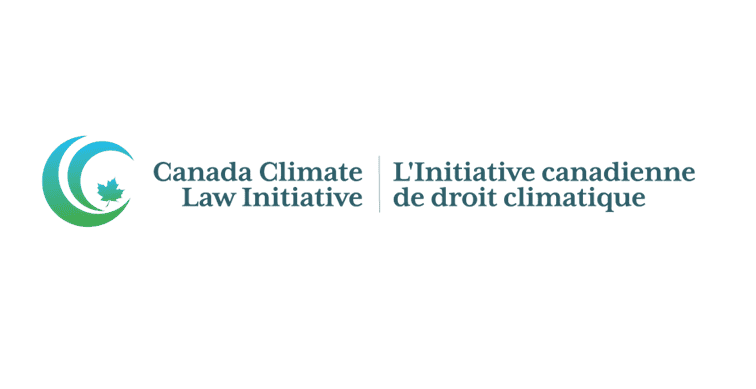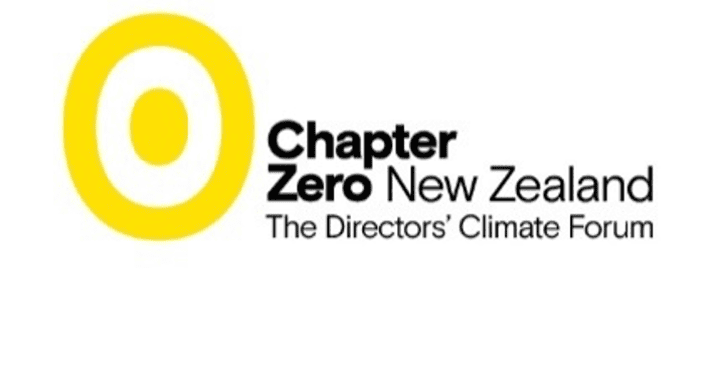The New Zealand Government has pledged to halve New Zealand’s emissions by 2030 relative to 2005 levels, and has a legislative target of reaching net-zero emissions by 2050.1 The Climate Change Commission was established in November 2019, to provide independent, evidence-based advice to the Government on climate issues, including the country’s ability to meet these goals. Advice will be given progressively over the coming years2 and forms a key resource to inform business leaders of some of the impacts they will need to consider.
For reporting periods starting on and from 1 January 2023, ‘Climate Reporting Entities’ (CREs) – essentially large New Zealand Exchange (NZX) listed entities and large financial institutions as described further below, are required to report publicly on climate change impacts, in accordance with the Aotearoa Climate Standards issued by the External Reporting Board (XRB), which are based on the Task Force on Climate-Related Financial Disclosures (TCFD), and supervised by the Financial Markets Authority (FMA). This is expected to provide greater transparency on climate-related impacts in relation to part of the New Zealand economy and inform stakeholders of the responsibility and foresight CREs are taking in their consideration of climate risks and opportunities.
Additionally, in March 2023, the Reserve Bank of New Zealand (RBNZ) released draft guidance for consultation on its intended approach to entities that the RBNZ prudentially regulates. The RBNZ has stated that it is “taking steps to factor climate change into [its] approach to prudential supervision: [it has] started discussing with entities the responsibilities, oversight and implementation of their climate strategies and climate-related risk management, and conducted exercises with the systemic banks on climate-related sensitivity analysis and stress testing”.3
The FMA has also signalled its aim to “ensure [the] effects of climate change are routinely considered in financial decision-making” by CREs.4 The FMA has also set expectations for issuers of financial products that claim non-financial features, such as ‘green’ bonds and ‘socially responsible’ managed funds.5
Directors’ Duties and Climate Change
New Zealand directors’ statutory duties are set out in the Companies Act 1993 (the Companies Act) (Part 8).6 The core duties of directors include the duty to act in good faith and in the best interests of the company (section 131), to exercise powers for a proper purpose (section 133), and to exercise reasonable care, diligence and skill (section 137).
Currently before the New Zealand Parliament is the Companies (Directors Duties) Amendment Bill (the Amendment Bill),7 which aims to clarify (section 131) that directors may take into consideration “recognised environmental, social and governance factors” when acting in the best interests of the company, whether they have direct financial implications or not As at 8 May 2023, the select committee has reported back. While it was acknowledged that the Amendment Bill would provide an “avoidance of doubt” provision, simplification of the amendment bill was recommended, to simply state that “a director may consider matters other than the maximisation of profit” without specific reference to ESG factors. The committee report will be debated and voted on by the House of Representatives to determine whether the Bill progresses.
In terms of the current law, in 2019, The Aotearoa Circle Sustainable Finance Forum published a legal opinion on the duties of New Zealand company directors and managed investment scheme providers regarding climate-related risks (the Aotearoa Circle opinion).8
The Aotearoa Circle opinion acknowledged that climate change includes foreseeable financial risks and must therefore be considered by directors and fund managers in the same way as any other financial risk.9 In particular, where companies are affected by climate-related financial risk, directors’ duty of care requires that they, at a minimum:
- identify that risk;
- periodically assess the nature and extent of the risk to the company, including by seeking and critically evaluating advice as necessary; and
- decide whether, and if so, how to take action in response, taking into account the likelihood of the risk occurring and possible resulting harm. The more material the risk, the more it would be reasonably expected to be considered.10
Directors’ Disclosure Obligations and Climate Change
In October 2021, the Financial Sector (Climate-related Disclosures and Other Matters) Amendment Act 2021 received royal assent.11 This Act amends the Financial Markets Conduct Act 2013 (the FMCA), the Financial Reporting Act 2013 and the Public Audit Act 2001 to:
- enable the XRB to prepare and issue climate-related reporting standards; and
- require CREs to make climate-related disclosures in line with the XRB climate standards that will be accessible to stakeholders and regulators.
CREs comprise:
- large NZX-listed issuers of quoted equity securities or quoted debt securities (i.e., with a market capitalisation or nominal amount exceeding NZ$60 million);
- large registered banks, licensed insurers, credit unions, and building societies (with total assets exceeding NZ$1 billion, or in the case of licensed insurers where premium income exceeds NZ$250 million). In the case of overseas CREs, the assessment is made by reference to “its New Zealand business as if that business were conducted by a company formed and registered in New Zealand”12; and
- large managers of registered managed investment schemes (with total assets exceeding NZ$1 billion).13
In addition, some other businesses (including some state-owned enterprises) have opted to voluntarily comply with the climate-related disclosure regime. Crown Financial Institutions are directed under letters of expectations from the Minister of Finance to report against the TCFD framework.14
The New Zealand Government has stated that the NZ$1 billion threshold for CREs will ensure that 90% of assets under management in New Zealand are included within the disclosure system.15 Also, the Government has indicated that it may publicly consult on possible wider private sector application after the regime comes into force.16
At a high-level, CREs are required to:
- prepare annual climate statements that comply with the XRB’s climate standards and are signed off by 2 directors;
- keep proper records (in accordance with additional guidance to be provided that will ensure climate statements comply with the XRB’s climate standards. These record-keeping requirements are to be the subject of additional regulations and guidance;17
- obtain an assurance engagement in relation to the climate statements to the extent those statements are required to disclose greenhouse gas emissions (though this requirement only applies to CREs for reporting periods ending on or after 27 October 2024); and
- lodge copies of climate statements with the Registrar of Financial Service Providers within 4 months after the balance date of the CRE. However, CREs that are large NZX listed issuers, registered banks or licensed insurers, are effectively required to report within 3 months after their balance date because of other regulatory regimes.18
The XRB published its climate standards in December 2022.19 The climate standards, at a high-level, require the disclosure of:
- the CRE’s governance structure for overseeing climate-related risks and opportunities, and the role played by management in assessing and managing those risks and opportunities;
- how climate change is currently impacting the CRE and how it may do in the future, including: undertaking climate scenario analysis under 2 mandatory scenarios (1.5°C, 3°C scenario), and a third scenario of the CRE’s choosing; analysing the climate-related physical and transition risks and opportunities faced by the CRE over the short, medium and long term, the impacts of those risks and opportunities; and the transition plan aspects of the CRE’s business strategy;
- a description of how the CRE identifies, assesses and manages climate-related risks, and how those are integrated into the CRE’s overall risk management process; and
- the CRE’s greenhouse gas emissions, emissions intensity and related reduction targets. The greenhouse gas emissions information will eventually need to be assured by an independent third party.
A useful and comprehensive guide to the regime is set out in the XRB’s Climate-related Disclosures Staff Guidance.20
In November 2022 the Ministry of Business, Innovation and Employment undertook consultation on introducing an occupational licensing regime for assurance practitioners and on whether the scope of the assurance requirement should be extended to include all disclosures in the climate statement.21
The assessment of climate-related risks and opportunities should be carried out over the business’ value chain.22
As a result, while the regime is positioned as a disclosure regime, the required analysis to make the disclosures is expected to lead to significant changes in how business is conducted.23
The FMA is tasked under the FMCA with the independent monitoring, reporting and enforcement of CREs under this regime. The FMA has released an initial implementation approach for the regime which provides that it will initially take “a broadly educative and constructive approach” to monitoring and enforcement but that it will enforce serious misconduct (i.e., failing to lodge climate statements, misleading and deceptive statements or conduct) in the early years.24
In addition, the FMA has highlighted that climate change needs to be taken into account in the preparation and auditing of financial statements under the Financial Reporting Act 2013 and New Zealand accounting standards.25
The FMCA details offences that could be committed by companies and/or directors personally under the climate-related disclosure regime, including:
- a failure to comply with record keeping requirements in relation to climate reporting;26
- knowingly failing to comply with the XRB issued climate standards;27
- for directors or employees, failing to provide information or an explanation to the climate assurance practitioner;28
- failing to file climate statements within four months of the CRE’s balance date;29 and
- for a CRE that is required to prepare an annual report under the Companies Act, failing to state and include in its annual report that the business is a CRE and a copy of the statements prepared under the FMCA or a link or address to where these can be found online.30
The Aotearoa Circle opinion also considered directors’ disclosure obligations more generally, with respect to climate-related risks. It concluded that where a company has public disclosure obligations (e.g., in product disclosure statements, continuous disclosure obligations, etc), directors must ensure that they disclose material financial risks associated with climate change beyond the scope of the FMCA.31
Best practice corporate governance guidance issued by NZX and the FMA is also explicit on the importance of reporting on environmental (including climate change), social and governance factors.32
An emerging issue for directors is also the claiming of climate or sustainability benefits in goods or services (including financial services) which have not been substantiated.33 Both the FMA and Commerce Commission are actively monitoring for greenwashing.
Biodiversity Risk
In March 2023 a legal opinion by New Zealand law firm Chapman Tripp34, instructed by the Aotearoa Circle, concluded that, under New Zealand law, New Zealand company directors have a duty to ensure that their businesses are identifying nature-related risks where these are foreseeable and material for their businesses, and equally to take any such risks into account in their decision making. The opinion sets out the environmental, legal and market context specific to New Zealand which could indicate that biodiversity loss could potentially pose a risk that directors in New Zealand need to pay attention to.
Practical Implications for Directors
It is generally settled that directors’ duties of due care and diligence require them to think through climate-related risks and opportunities as part of taking a long-term perspective, in the decision-making process of the business. Some entities have already been subject to litigation where court orders are sought to reduce their greenhouse gas emissions or cease operations. Shareholder activism can also be expected to rise going forward. This means that for directors the standard is higher, and taking action on climate change is no longer optional, but expected.
Given that regulators in New Zealand have become increasingly explicit regarding the need for companies and their directors to adopt climate resilience measures in business practices and disclosure, and that the mandatory climate-related reporting under the FMCA is already applying to some entities in New Zealand, well-counselled boards will:35
- put on the agenda for the board a process to start (if they have not already) developing a climate transition roadmap to 2050 with transparent carbon neutrality or reduction targets, with clear interim targets to 2040, 2030, and within the current rolling multi-year strategic plan, and periodically thereafter report back to the board;
- determine whether the business is a CRE and is required to report on a mandatory basis under the XRB’s climate standards and FMCA and, even if it is not, consider whether the business should voluntarily comply with those standards to assist the business in assessing the risks and opportunities that climate change presents and how they are considered in decision-making;
- delegate (but maintain appropriate oversight over) climate risk(s) and opportunity(ies) identification and evaluation, and scenario analysis, to a clearly-identified team within management (who may require additional internal and/or external assistance) which reports directly to the CEO and board. A director does not need to be a climate scientist, but they should (assuming a competent team has been delegated this work) be able to engage with and understand how a given set of circumstances affect (at least qualitatively) the business and have a view on the risk, opportunities and transitional planning associated with it, including the key underlying assumptions;
- consider the best governance structure to undertake the analysis required for and preparing the climate-related disclosures (if applicable) such as the creation of a working group or delegate to the appropriate committee(s) of the board. Delegations may relate to risk, audit, legal and governance, scenarios/strategy, nominations/remuneration, or sustainability/corporate responsibility, the task of undertaking the analysis required for and preparing the climate-related disclosures (if applicable).It is important to ensure these groups have access to advice as needed;
- require management and the business to have robust processes and controls to mitigate or take advantage of identified climate change impacts, and set accountability measures and report on them;
- discuss with disclosure counsel, to develop an external engagement and communications plan and to oversee rigorous disclosure and accounting, and ensure that climate-related disclosures are consistent with the business’ other disclosures; and
- ensure appropriate oversight of and due diligence in respect of public statements, including in relation to advertising and promotional material, making claims in relation to climate change and other green initiatives, to manage greenwashing risk.
The boards of CREs will be subject to additional scrutiny because of the transparency of their climate-related disclosures and other reporting.
Directors are expected to consider the regime in the wider context of their business’ purpose, strategy and operations, over the short, medium and long term. Directors should look at climate-related risks and opportunities in an integrated way with relevant aspects of their business’ strategy and operations.
Businesses interacting with CREs may also be required to monitor and report to them on their climate policy and climate-related impacts as they are required to report on scope 1, 2 and 3 emissions.
The recognition of climate risk from regulators (such as the RBNZ, FMA, and Commerce Commission) also signals the continuing need for directors and other business leaders to be educating themselves on climate risks and opportunities (if they aren’t already). Further, directors have a responsibility to set the tone from the top to acknowledge the financial and other risks and opportunities arising from climate change for their company.
Contributors:
- Lloyd Kavanagh, MinterEllisonRuddWatts
- Zena Razoki, MinterEllisonRuddWatts
- Dr. Janis Sarra, Professor of Law, University of British Columbia, Canada Climate and Law Initiative
- Commonwealth Climate and Law Initiative
 |  |  |  |
